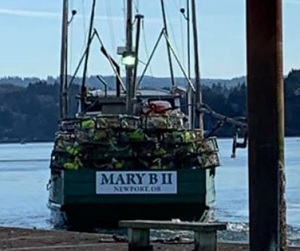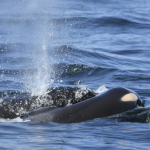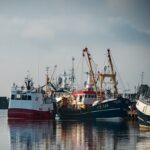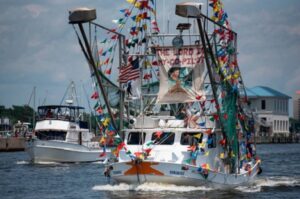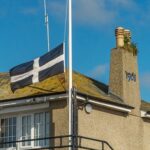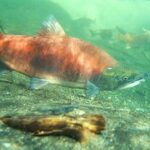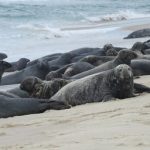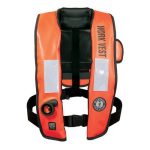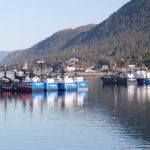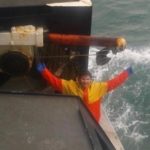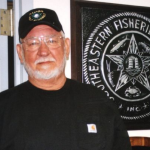Category Archives: Mid Atlantic
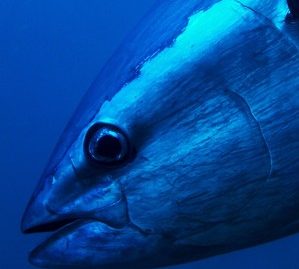
Exploring Potential Changes in Bluefin Tuna Management
NOAA Fisheries announces the availability of a scoping document on Amendment 13 to the 2006 Consolidated Atlantic Highly Migratory Species Fishery Management Plan and our intent to prepare an environmental analysis under the National Environmental Policy Act. Issues and options paper The issues and options paper explores management options with a focus on: Refining the Individual Bluefin Quota Program. Reassessing share distribution and allocation of bluefin tuna quotas, including the potential elimination or phasing out of the Purse Seine category. Other regulatory provisions regarding the directed and incidental bluefin fisheries. >click to read<11:19
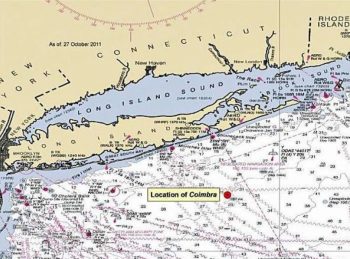
Efforts to plug oil leak in British WWII tanker torpedoed by U-boat off US coast
A team has been working to stop oil leaking from a British tanker sunk off the US coast during World War Two. The Coimbra was carrying more than two million gallons of oil when she was torpedoed in January 1942 by a German U-boat. She sank about 30 miles off the coast of Long Island, New York, and became one of 148 petrol tankers and other ships sunk by the U-boats near the coast. But in 2015 there were reports of what appeared to be an oil sheen in the area. >click to read<10:44
Oil Being Extracted from Tanker Sunk off Long Island Coast by German U-Boat in WWII – >Video, click to read<
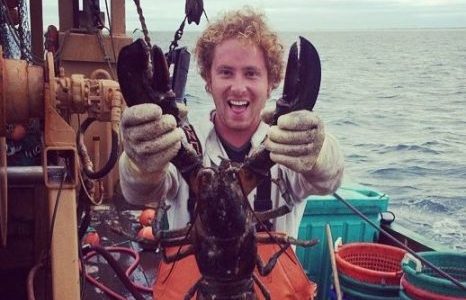
GoFundMe Established For Gravely Injured Hampton Bays Man
Matthew Raynor, 29, and a resident of Hampton Bays, was gravely injured in a diving accident doing just that near Towd Point in North Sea. Matthew is a commercial fisherman, clammer, bayman, world traveler and photographer. According to Jonathan, his older brother by four years, “Matthew is a devotee of nature and is more comfortable and connected outdoors than indoors.” The accident occurred on April 18,,, >click to read<19:34
Jonathan established a GoFundMe page, Help Matthew Raynor recover from a spinal injury. >click here< and please donate if you can.
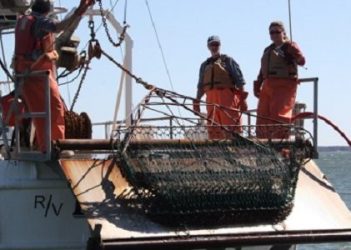
Blue crab stock healthy with above average abundance
Results from the latest Blue Crab Winter Dredge Survey — conducted annually by the Virginia Institute of Marine Science and Maryland Department of Natural Resources — show the Chesapeake Bay’s blue crab stock remains healthy and able to support quality commercial and recreational harvests. The results — available due to months of field sampling and laboratory analysis by VIMS researchers Mike Seebo, Katie Knick, Gabby Saluta, Alison Smith, and colleagues at Maryland DNR — were announced by the Virginia Marine Resources Commission and Maryland DNR leadership. >click to read<21:22
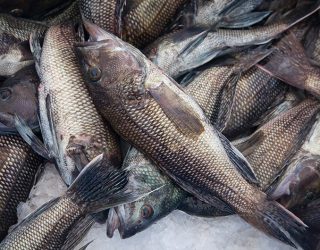
Assessment Oversight Panel (AOP) meeting for Monkfish, Scup, Bluefish, Black Sea Bass, May 20, 2019,
The Northeast Fisheries Science Center would like to inform you of the 2019 stock assessments.,,, There will be several sets of assessments conducted this year, and the assessment process begins for Scup, Bluefish, Black Sea Bass, and Monkfish on Monday May 20, 2019 with a panel review of scientific information and assessment plans (details below). After this plan review, the assessments will be conducted and later peer reviewed in 2019. Attend In Person, >click to read< or online, >click to register<13:59
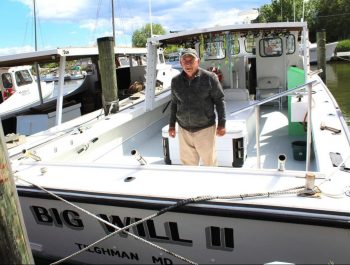
By dint of hard work
It’s a story of being in the right place at the right time. But mostly, it’s a success story by dint of a long life of hard work. It shows on Capt. Willy Roe’s face. He’s earned his wrinkles and thinning hair. But there’s a cragginess, a waterman’s weathered visage that tells its own story of too much sun, frigid gales and choppy seas on the Chesapeake Bay and its rivers and creeks. An official old-timer at 85, Roe still is working. >click to read<09:00
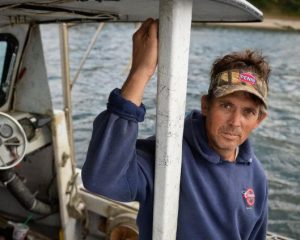
Long Island Sound boundary at Oyster Bay Harbor decided by courts
Baymen called on Oyster Bay officials to move jurisdiction markers for shellfishing beds at the boundary of the Long Island Sound as decided recently by a state appellate court. Last month, the New York State Appellate Court, Second Department, upheld a 2016 lower court decision in a lawsuit against the town that ruled the boundary of the Sound runs along a line from Rocky Point in Oyster Bay east to Whitewood Point on Lloyd Neck. At issue was who could shellfish in those waters. The case arose after Nassau County police ticketed independent fisherman Bryan C. Murphy in 2010 for shellfishing in those waters. >click to read<
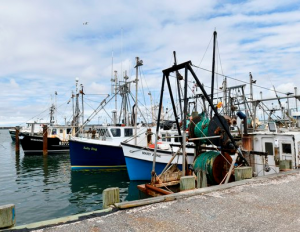
Suffolk County Officially Transfers Ownership of Shinnecock Commercial Dock To Southampton Town
Tuesday, Suffolk County officially signed over full ownership of the commercial fishing dock to the Town of Southampton, according to a press release. Additionally, the transfer included an 11-acre stretch of beachfront along Shinnecock Bay just west of the dock. Prior to the transfer, the costs of repairing or upgrading the dock were evenly split between the town and the county. Under an inter-municipal agreement, signed by both parties in 2002, any repairs or upgrades required approvals from both town and county officials. Southampton Town Councilwoman Julie Lofstad, who co-owns a commercial fishing boat with her husband, Raymond Lofstad, explained that the added layers of government approval only complicated things. >click to read<11:45
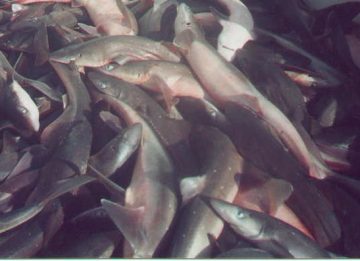
NOAA/NMS Announces 2019-2021 Spiny Dogfish Specifications
We are approving and implementing the final 2019 and projected 2020-2021 specifications for the spiny dogfish fishery, as recommended by the Mid-Atlantic and New England Fishery Management Councils. The specifications for the 2019 spiny dogfish fishery are a 46-percent reduction from fishing year 2018 to,,, >click to read<11:22
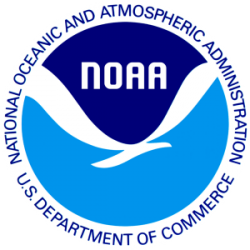
NOAA – Ecosystem-Based Fishery Management Implementation Plans by Region
NOAA Fisheries has released nine implementation plans that identify priority actions and milestones for Ecosystem Based Fisheries Management nationally and regionally, including for Atlantic highly migratory species, for the next five years. Each plan identifies milestones for a specified geographic area. The milestones relate to six guiding principles laid out in the 2016 EBFM Policy and Road Map >click to read<13:03

Scup, Bluefish, Black Sea Bass, and Monkfish – 2019 Fisheries Stock Assessments
The Northeast Fisheries Science Center would like to inform you of the 2019 stock assessments. During these assessments we will use existing models and data sources to evaluate stock health. Our data come from a variety of sources, including recreational and commercial fishermen, fish dealers, fishery observers, and research surveys. There will be several sets of assessments conducted this year, and the assessment process begins for Scup, Bluefish, Black Sea Bass, and Monkfish on Monday May 20, 2019 with a panel review of scientific information and assessment plans (details below). After this plan review, the assessments will be conducted and later peer reviewed in 2019. >click to read<09:49
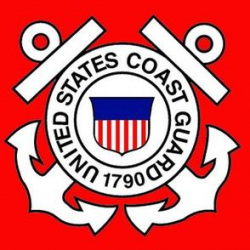
F/V Mary B II captain tested positive for amphetamine, methamphetamine
Coast Guard investigators revealed that the captain of the doomed fishing vessel Mary B II tested positive for methamphetamines and alcohol. Captain Stephen Biernacki registered 0.17 mg per liter of amphetamine and 0.50 mg per liter of meth, according to post mortem toxicology results. The alcohol level was 0:033g/dL. A five-member panel of Coast Guard investigators on Monday kicked off a multi-day hearing on the Jan. 8 capsizing that took the lives of Biernacki, of New Jersey, and crewmen Josh Porter of Toledo and James Lacey of New Jersey. >click to read<14:55
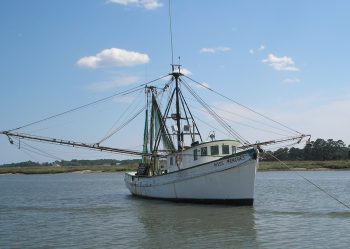
Saving Fishing Into The Future, Rocky Novello
Most all fishermen in the U.S.A., are having the same problems in fishing which include: NOAA Fisheries which uses outdated science, and outdated fishing regulations, which should have been changed as our oceans were changing. The big environmentalist organizations, funded by big oil, who collectively spent hundreds of millions of dollars getting rid of many our fellow commercial fishermen from so many places. They did a great job.,,, >click tor read, and comments from others will appreciated<10:40
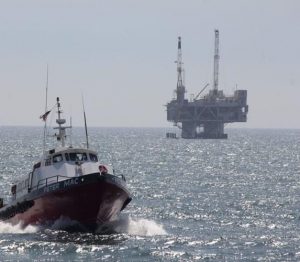
Opinion: Atlantic drilling issue dries up again, without lasting resolution
The curtain has come down on the latest of “to drill or not to drill in the Atlantic.” It ran two years, just a bit longer than the one before it in a series dating to the 1980s. The ending, as expected, was the same, since deepwater drilling in the Atlantic wouldn’t be profitable and is broadly opposed. A renewed federal effort begun in May 2017 to offer leases to drill for oil and natural gas off the East Coast was suspended indefinitely by the Trump administration. A similar push by the Obama administration ended with reinstatement of a temporary moratorium on drilling. Other than the presidents, most of the players remained the same. Opposition was led by state and local officials in both parties the length of the coast,,, >click to read<18:36

It’s Raining Ratepayer Money! Wind Goes A’Wooing in $70 Billion Race for Offshore U.S. Market
Want to spruce up your downtown, or maybe get $10 million to support workforce training at the local college? How about investments to help rebuild aging ports and establish trust funds for your fisherman? A U.S. unit of Denmark’s Orsted A/S is now dangling all of those perks in its push to be an early developer of offshore wind in a potential $70 billion East Coast market. The target of the largesse: Community groups with political muscle, the ability to shape public sentiment and access to lawyers. “We’re over the moon,” said Michael Passero, the mayor of New London, Connecticut. The package drawing Passero’s raves: $93 million to upgrade the State Pier in New London,,, >click to read<13:12 Cape Cod Community College, Vinyard Wind partner to offer ‘Offshore Wind 101: Energy, Climate and Jobs – >click to read<14:35
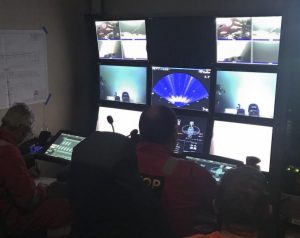
U.S. Coast Guard, partner agencies continue to assess Tanker Coimbra Southeast of Shinnecock Inlet
The U.S. Coast Guard and New York State Department of Environmental Conservation, along with contracted Resolve Marine Group, continue to assess the tanker Coimbra located approximately 30 miles southeast of Shinnecock, N.Y. >click for 9 images< Boaters Advised To Stay Away As Coast Guard Investigates World War II Tanker Southeast Of Shinnecock Inlet the Coimbra, which sank 30 miles off the coast of Shinnecock Inlet more than 70 years ago. >click to read<11:09
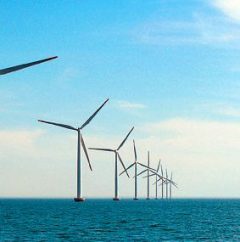
Deepwater pulls back, wind farm on hold
The wind turbine project planned off the coast of Montauk is dead in the water, at least for now. The Bureau of Ocean Energy Management confirmed this week that Deepwater Wind has asked the federal agency to halt its review of the project for the foreseeable future. Dubbed the South Fork Wind Farm, the 15-turbine project would be located in the Atlantic Ocean 35 miles east of Montauk. BOEM has confirmed in a missive that the “environmental review of the Deepwater Wind’s construction and operations plan (COP) is currently paused by request of Deepwater Wind.” The document on BOEM letterhead is signed by a BOEM official whose name has been redacted. However Stephen Boutwell, a spokesman for BOEM, confirmed the document’s accuracy Monday. >click to read<10:29
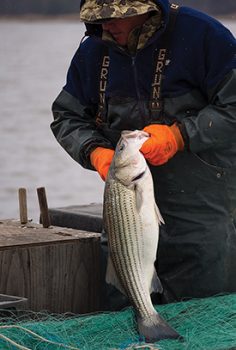
ASMFC says rockfish harvests need to be cut 17 percent
East Coast fishery managers last week took the first steps toward cutting the striped bass harvest 17 percent next year to help end overfishing of the popular species, which has been in decline for years. Options about how the harvest should be reduced will be presented to the Atlantic States Marine Fisheries Commission at its August meeting, after which proposals would go out for public comment. Final measures could be approved in October.,,, The issue of such “dead discards” — fish that die after being released by anglers — has gained more attention from fishery managers because the new assessment found,,, >click to read<08:45
Gerald Almy: Virginia’s trophy saltwater striped bass season canceled – >click to read<09:19
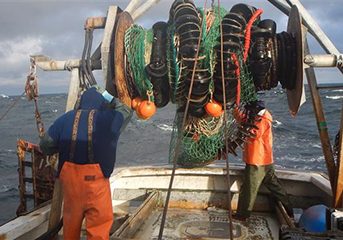
New England, Mid-Atlantic fishery councils ponder switch to electronic vessel trip reporting
The move, which is under an omnibus framework action, would require commercial fishing vessels to fill out all of their vessel trip reports electronically, eliminating the ability to fill out paper forms. Electronic vessel trip reporting (eVTR) has been an established way to submit reports since 2013, according to Karson Coutre of the Mid-Atlantic council. ,,, While the Mid-Atlantic council is the one considering the move to mandatory eVTR, the New England Fisheries Management Council (NEFMC) will also need to consider the implications of transitioning to mandatory electronic reporting. >click to read<16:39
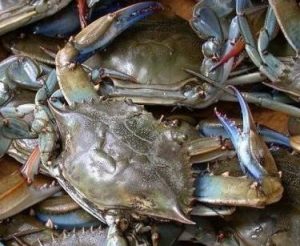
Chesapeake Bay blue crab rebounding in 2019, led by near-doubling of juvenile crab population
Scientists in Maryland and Virginia found that in 2019, the bay’s crabs are at their most plentiful in seven years. The number of spawning-age females, a key measure of future population growth potential, reached 190 million, a 29% increase over the previous winter.,,, The results suggest a strong crabbing season is ahead for Chesapeake waterman, with strong numbers of adults ready to be harvested as waters warm this month, and a booming crop of young that could grow large enough to be legally caught by the fall, or the 2020 crabbing season. >click to read<13:31
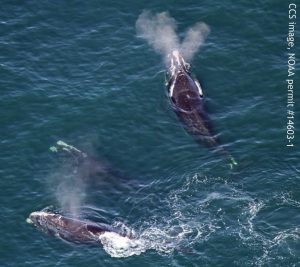
NOAA Team Reaches Consensus on Right Whale Survival Measures
“This is hard work. The Team members brought not only their expertise but also their passion for the people and communities they represent to the table. Everyone understands that there are real and difficult consequences to fishermen as a result of the choices made in this room,” said Sam Rauch, NOAA Fisheries deputy assistant administrator for regulatory programs.,,, The group will meet in Providence, Rhode Island for four days. At the end of the meeting, they hope to agree on a suite of measures that will reduce right whale serious injuries and deaths in fishing gear in U.S. waters from Maine to Florida to less than one whale per year, the level prescribed by the Marine Mammal Protection Act. >click to read<09:15
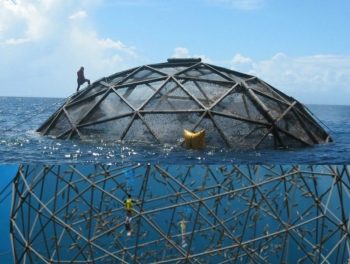
Putting the Brakes on finfish aquaculture in federal waters, Young Introduces Legislation to Protect Wild Fish Populations
Don Young, the Republican congressman for Alaska, has introduced the Keep Fin Fish Free Act, which would specifically prohibit federal agencies from permitting marine finfish aquaculture facilities in federal ocean waters, unless and until Congress passes a future law authorising such permits. “My legislation takes needed steps to prevent the unchecked spread of aquaculture operations by reigning in the federal bureaucracy and empowering Congress to determine where new aquaculture projects should be conducted.>click to read<08:52
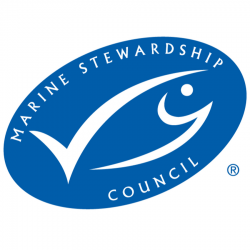
U.S. Shortfin Squid Fishery Achieves MSC Certification
The U.S. Northeast Northern Shortfin Squid (Illex illecebrosus) fishery in the Northwest Atlantic has been certified sustainable against the MSC fisheries standard. The assessment, executed by independent conformity assessment body SCS Global Services and requested by Lund’s Fisheries, Inc. and The Town Dock, was part of a scope expansion following the successful certification of the U.S. Northeast Longfin Inshore Squid (Loligo pealeii) bottom trawl fishery in 2018. Illex joins Loligo as the 2nd squid species in the world to be MSC certified. >click to read<22:37
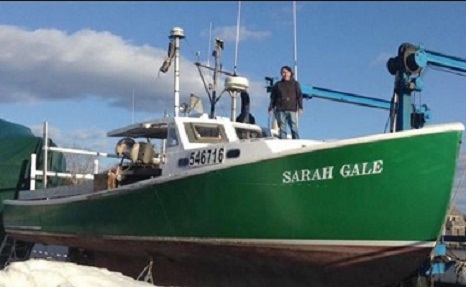
Please support our local commercial fishermen
If you don’t think commercial fishermen are an endangered species – think again. I have been very vocal over the years about my feelings on the commercial fishing industry being in jeopardy, and highlighting the importance of just what an integral part the industry plays in not only the economy, but the infrastructure as a whole, not only in our town and coastal towns across America. As someone with deep ties to our community and the fishing community in particular, I am in a unique position working as a mate on a commercial fishing vessel, and being a journalist. I see so much firsthand that I hope the general public will take into account when I write about it. So here I go again, with more food for thought on an issue that is near and dear to my heart. Thank you for reading, Shelley Wigglesworth >click to read<16:43

Mass. commercial fishermen decry offshore wind projects’ pace
If fully built out, the offshore wind farms would cover a 1,400-square-mile area larger than the Ocean State and would negatively impact marine life and fishing grounds, the group said. “Commercial fishing families, as stewards of the ocean, are concerned that a new industry is developing at a rapid pace without adequate science and risk management,” the Massachusetts Fishermen’s Partnership stated in a release Wednesday. The fishermen’s group said Vineyard Wind is rushing the project to ensure it receives federal tax credits before they expire.,,, Wednesday’s statement from Massachusetts fishermen came as they try to reach an agreement with Vineyard Wind on a compensation package,>click to read<15:37
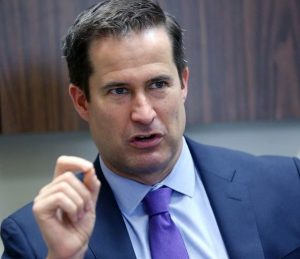
House Resolution 1568 – SAVE Right Whales Act, committee backs right whale conservation bill
House Resolution 1568 — whose lead sponsor, U.S. Rep. Seth Moulton, D-Mass., is one of nearly two dozen people running for the Democratic nomination for president — provides $5 million per year from 2019 to 2029 that would go to relevant state and tribal agencies, research institutions and nonprofits with expertise required in right whale conservation.,,, U.S. Rep. Jared Huffman, D-Calif., presented the bill and said it’s been endorsed by the Massachusetts Lobster Association and the Cape Cod Fishermen’s Alliance. It’s also backed by Oceana, the Natural Resources Defense Council and the Humane Society of the United States, among others. >click to read<11:43
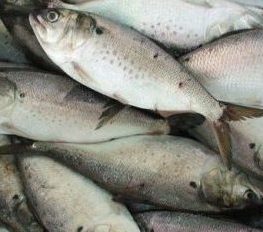
Our view: Abundant menhaden draw whales and endless dispute over its fishery
A sustainable and growing menhaden fishery, though, isn’t enough for some. Since at least 1888, when the Rod and Reel Association claimed commercial menhaden boats were taking fish better left as food for species they liked to catch and eat, people have fought over the best use for menhaden. In the fall of 2017, a coalition of environmental and sport fishing interests, partly led by a unit of the Pew Charitable Trusts, successfully lobbied the fisheries commission to switch to a unique new management approach for a fishery, one based on estimates of how the menhaden population affects other fish and wildlife that prey upon it. >click to read<10:42
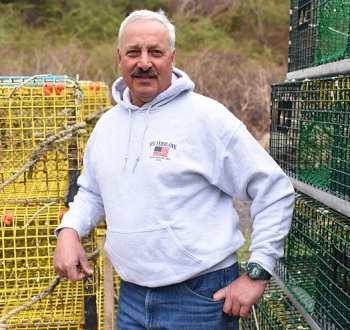
Sandwich lobsterman raises concerns about offshore wind farms
After 40 years in the business, Sandwich commercial lobsterman Marc Palombo foresees the presence of fog in the summer months as his biggest worry as he considers whether or not to navigate through the proposed swath of offshore wind turbines south of the Islands.,,,The Coast Guard has begun a study of vessel traffic — a Port Access Route Study, or PARS — in and around the seven offshore energy lease areas south of the Islands, off both Massachusetts and Rhode Island, to determine if any new vessel travel routes are necessary to improve navigational safety,,, >click to read<22:17
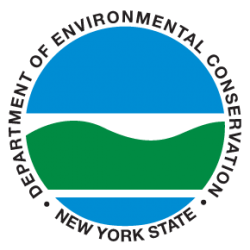
New York State Department of Environmental Conservation Announces Emergency Regulations for Scup
Increased Possession Limit Will Benefit New York Commercial Fishing Industry The New York State Department of Environmental Conservation (DEC) adopted emergency regulations, effective immediately, to increase the incidental possession limit for the commercial scup fishery from 200 to 2,000 pounds through June 15. This exemption allows commercial harvesters in the small-mesh squid fishery to keep and sell more scup, resulting in increased income for commercial harvesters. The rule change will also reduce waste in the fishery by preventing dead scup from being discarded overboard due to the prior lower harvest limit. >click to read<11:37






